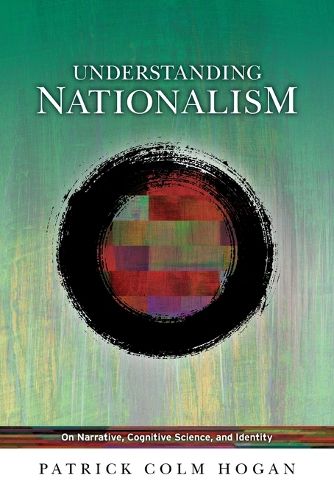Readings Newsletter
Become a Readings Member to make your shopping experience even easier.
Sign in or sign up for free!
You’re not far away from qualifying for FREE standard shipping within Australia
You’ve qualified for FREE standard shipping within Australia
The cart is loading…






This title is printed to order. This book may have been self-published. If so, we cannot guarantee the quality of the content. In the main most books will have gone through the editing process however some may not. We therefore suggest that you be aware of this before ordering this book. If in doubt check either the author or publisher’s details as we are unable to accept any returns unless they are faulty. Please contact us if you have any questions.
From the rise of Nazism to the conflict in Kashmir in 2008, nationalism has been one of the most potent forces in modern history. Yet the motivational power of nationalism is still not well understood. In Understanding Nationalism: On Narrative, Cognitive Science, and Identity, Patrick Colm Hogan begins with empirical research on the cognitive psychology of group relations to isolate varieties of identification, arguing that other treatments of nationalism confuse distinct types of identity formation. Synthesizing different strands of this research, Hogan articulates a motivational groundwork for nationalist thought and action. Understanding Nationalism goes on to elaborate a cognitive poetics of national imagination, most importantly, narrative structure. Hogan focuses particularly on three complex narrative prototypes that are prominent in human thought and action cross-culturally and trans-historically. He argues that our ideas and feelings about what nations are and what they should be are fundamentally organized and oriented by these prototypes. He develops this hypothesis through detailed analyses of national writings from Whitman to George W. Bush, from Hitler to Gandhi. Hogan’s book alters and expands our comprehension of nationalism generally-its cognitive structures, its emotional operations. It deepens our understanding of the particular, important works he analyzes. Finally, it extends our conception of the cognitive scope and political consequence of narrative.
$9.00 standard shipping within Australia
FREE standard shipping within Australia for orders over $100.00
Express & International shipping calculated at checkout
This title is printed to order. This book may have been self-published. If so, we cannot guarantee the quality of the content. In the main most books will have gone through the editing process however some may not. We therefore suggest that you be aware of this before ordering this book. If in doubt check either the author or publisher’s details as we are unable to accept any returns unless they are faulty. Please contact us if you have any questions.
From the rise of Nazism to the conflict in Kashmir in 2008, nationalism has been one of the most potent forces in modern history. Yet the motivational power of nationalism is still not well understood. In Understanding Nationalism: On Narrative, Cognitive Science, and Identity, Patrick Colm Hogan begins with empirical research on the cognitive psychology of group relations to isolate varieties of identification, arguing that other treatments of nationalism confuse distinct types of identity formation. Synthesizing different strands of this research, Hogan articulates a motivational groundwork for nationalist thought and action. Understanding Nationalism goes on to elaborate a cognitive poetics of national imagination, most importantly, narrative structure. Hogan focuses particularly on three complex narrative prototypes that are prominent in human thought and action cross-culturally and trans-historically. He argues that our ideas and feelings about what nations are and what they should be are fundamentally organized and oriented by these prototypes. He develops this hypothesis through detailed analyses of national writings from Whitman to George W. Bush, from Hitler to Gandhi. Hogan’s book alters and expands our comprehension of nationalism generally-its cognitive structures, its emotional operations. It deepens our understanding of the particular, important works he analyzes. Finally, it extends our conception of the cognitive scope and political consequence of narrative.